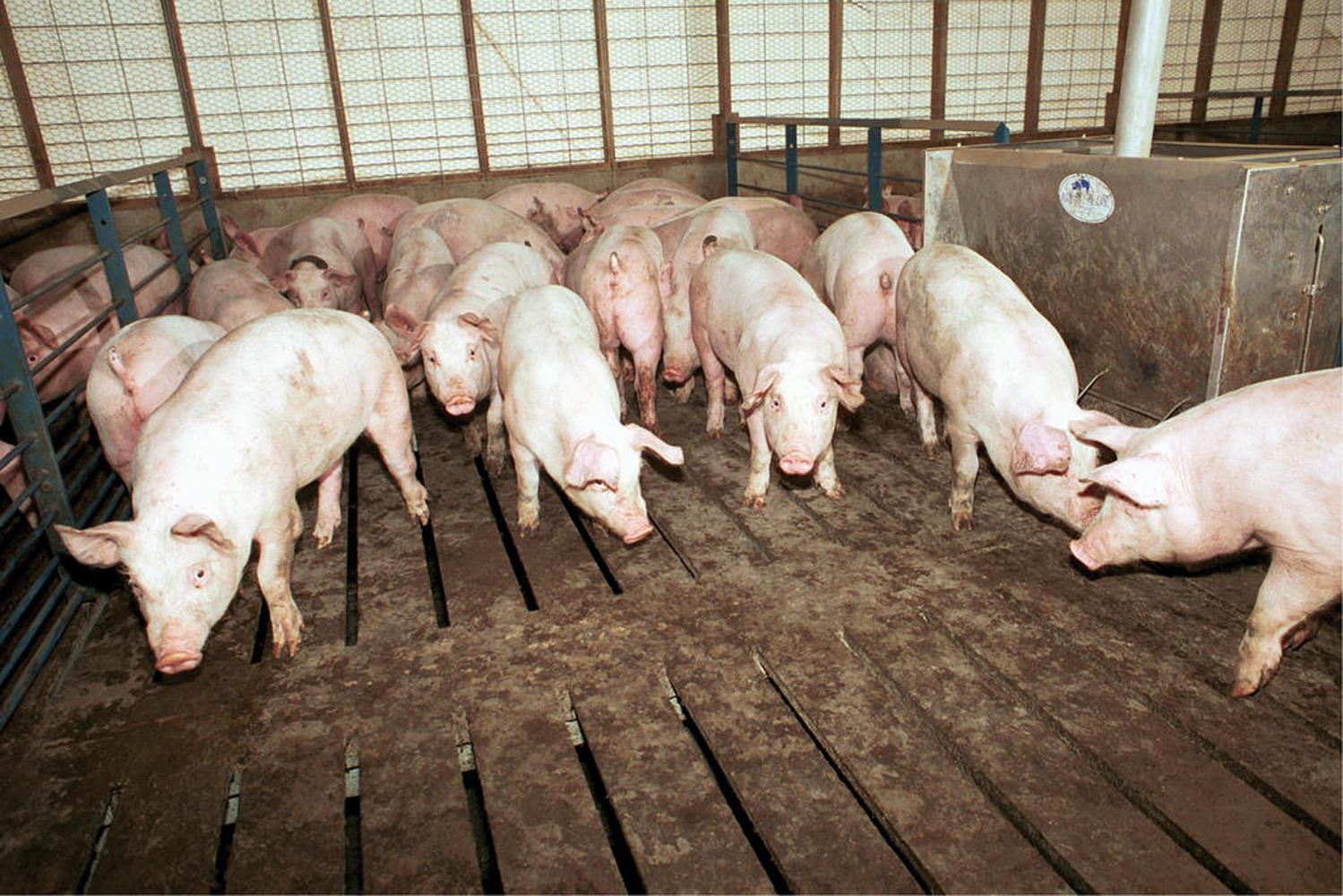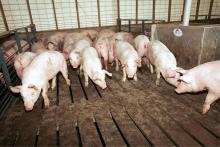Information Possibly Outdated
The information presented on this page was originally released on April 19, 2007. It may not be outdated, but please search our site for more current information. If you plan to quote or reference this information in a publication, please check with the Extension specialist or author before proceeding.
State's hog industry to revamp operations
MISSISSIPPI STATE -- Mississippi's hog producers are finding ways to stay in business despite the major blow dealt by the March 30 closing of Bryan Foods' West Point plant.
The Sara Lee Corp. decision to close the meat-processing plant caused the state's swine industry to scramble to find new markets and a new direction. Mark Crenshaw, swine specialist with the Mississippi State University Extension Service, said the closing has a devastating impact on the swine industry in Mississippi and surrounding states.
“There's not a large capacity plant to market finished pigs anywhere close in the southeast region right now,” Crenshaw said.
Crenshaw said he anticipates a long-term change in the type of hog production in Mississippi and neighboring states.
“Mississippi's hog production in recent years has mostly been farrow to finish, or producing pigs from birth to a market weight of 250 to 280 pounds,” Crenshaw said. “It's hard to justify feeding pigs to market weight when you have to load those pigs on a truck and transport them a long distance to a packer/processor. With fuel and feed costs going up and hog prices not rising, it doesn't pencil out economically to ship them far.”
Terry Emerson is general manager of Prestage Farms Mississippi in West Point. His division took 100 percent of their market animals to the Bryan plant where they accounted for 35 percent of the plant's capacity.
“Currently, we are still delivering our pigs to the plant. We have a three-year contract with them that expires December 2009,” Emerson said. “We're unloading the pigs, and they're weighing them, and we're getting paid. They are reloading the pigs and taking them to other plants in other states.”
He said Prestage Farms Mississippi and Sara Lee are working out details in this contract. The company he represents is going to have to change its business plan and will change the type of hog operations it contracts in the state.
“Instead of growing-out market animals, we're going to become an all-sow herd and ship weanlings to the Midwest,” Emerson said.
Barn interiors will be reconfigured to accommodate sows and piglets, which will be shipped to the Midwest after they are weaned.
“We want to utilize the facilities we currently have as best as we can. Our facilities in the state can still be part of the swine industry,” Emerson said. “We're trying to change the business plan to accommodate the contract growers.”
Emerson said Prestage Farms is remaining loyal to their Mississippi contract growers, even if it costs the company.
“We're going to create a business model where everybody in the swine industry affiliated with Prestage Farms will have the opportunity to stay in the swine industry,” he said.
Crenshaw, the swine specialist at MSU, said Prestage Farms is not alone in having to change the way it does business.
“We may see some growth of specialty marketing and more emphasis placed on producing pigs to be shipped elsewhere to be fed out,” Crenshaw said.
Stanley Brooks, director of agricultural enterprises at the Mississippi State Penitentiary at Parchman, said his operation was selling about 170 pigs a week to Bryan Foods.
“Once we found out they were closing, we started looking for other markets. We're now shipping our hogs to Tyson in Logansport, Ind.,” Brooks said. “It's going to cut into profitability. We were paying $400 to ship to West Point. They're charging us $1,600 to ship them to Tyson.”
While the penitentiary has a mostly pork-free menu, it sends about 30 hogs a month to a local processor to provide food for inmates. Inmates at community work centers sell the ribs and sausage to customers.
Brooks said the swine operation at Parchman was set up to be a moneymaking enterprise and to give inmates work.
“Our operations are set up to be very labor intensive. We have a 4,000-head farrow to finish operation, and we work about 60 inmates,” he said.
Labor costs are very low, and the prison grows its own corn and has its own feed mill. Brooks said this keeps production costs lower than those faced by most others in the business.



